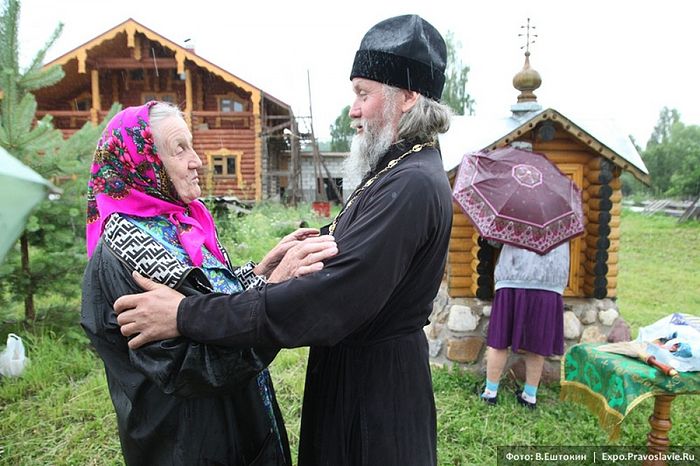“As a Christian, I shouldn’t have these feelings.” This is what many people think when they experience negative emotions. On the other hand, popular psychology books often suggest that to avoid psychosomatic disorders people should express anger, resentment, and envy just like any other feeling they may have. Which of these approaches is correct? How can Christians avoid feeling like pressure cookers with so much internal steam pressure that their lids are about to blow off? How to find harmony between expressing your feelings and being reserved?
“Keep quiet, keep quiet, keep quiet!... ?
The idea that Christians must suppress all human feelings is a widely spread misconception and I hear such opinions quite often. From the spiritual point of view, this idea is wrong. If you keep on tightening the nut, you will eventually strip the thread and the bolt will be damaged beyond any use. The same happens with people: sooner or later such behavior will make them lose control and hurt themselves or people around them. Moreover, such an experiment is quite dangerous for one’s state of mind. This crisis in inevitable, for we cannot live without experiencing emotions, and if we deny ourselves this opportunity, we start approaching that internal limit beyond which the compressed spring will definitely recoil.
What do Holy Fathers teach about emotions? The first and the most vivid example that comes to mind is a story about St. Poemen the Great and his brothers, which is included in the Patericon of St. Ignatius (Bryanchaninov). These ascetics once had to live in a deserted pagan temple. There was a statue in this temple and Abba Anoub, the eldest brother, came up to it every day, first throwing stones at it and then bowing to it. Naturally, the brothers were puzzled; how can a Christian bow to an idol! And eventually they decided to ask him about it. Abba Anoub explained that he did it for their sake to demonstrate that whether he threw stones at the statue or bowed to it, the statue never got confused, angry or overjoyed. This is how people should behave to have peace among themselves.
However, this lesson doesn’t mean that Christians should turn into stone statues with hearts of stone. It is very important to understand that choosing this behavioral model doesn’t mean becoming emotionless. As we know, Abba Anoub was very emotional when one of his brothers started a fight. However, our nature and attitude to life sometimes make us think that “not getting overjoyed or angry” means “feeling nothing at all.” This approach is superficial and wrong, for the objective of a Christian is totally different.
It is important to make sure that your emotion is not released at a particular moment, turning into an uncontrollable force that could mess up your life and leave you devasted. St. John of the Ladder said that when you feel like expressing your anger, you should at least avoid expressing it in words and remain silent. After that, it is crucial to deal with this emotion and determine what kind of anger it was, what was its source, and why did you feel it at that particular moment? You need to understand what is so wrong in your life that such a sinful feeling could surface. This internal effort, which includes figuring out what it was inside of you that contradicted the Gospel, followed by your repentance, correction, and return to God may conquer any negative feeling. Not simply suppressing it so that it is invisible or imperceptible, but making it disappear altogether. You can’t do it on your own, but God will help you. A non-religious person may face a dilemma—whether to express negative emotions or to swallow them—while Christians are not limited by this dilemma as they have a third option.
Don’t keep on telling yourself “Keep quiet, keep quiet, keep quiet!” This technique maybe useful for conditioning an animal, but it wouldn’t work with people. People are different, and a certain internal effort is needed to overcome the unwanted sinful feelings.
“He who laughs for a long time, will cry in the end”?
In addition to frequent attempts by religious people to suppress any emotion, there is another concern. When people ask what to do with their feelings, they only refer to bad feelings, seemingly forgetting about such feelings as joy, thankfulness, appreciation and responsibility… It is a clear indication that these feelings occupy such a small place in the lives of many Christian people and that they are often brushed aside. We shouldn’t suppress good feelings or replace them with something rational. These feelings must be vibrant and spontaneous. At the same time, we should be tactful and considerate about expressing them. We can probably say that in general a person should maintain a certain emotional balance to express his or her feelings reservedly rather than overwhelmingly.
As a first step, try to maintain inner awareness when you express any emotions, even joyous and good-natured. There is a saying, “He who laughs for a long time, will be crying later.” It seems strange, but it does make sense. If you laugh when you’re strolling down the street, you may walk into a lamppost, because you weren’t watching where you were going. It is the most obvious, straightforward and yet allegorical example of what might happen with a person who is overwhelmed by emotions.
Similarly, you must find a balance when you evaluate any situation in order to make sure that on one hand you are not caught up in your potentially excessive emotions and on the other hand your reservedness is not turned into apathy. This middle ground can be found only empirically. We all have a different sense of balance, and each of us finds the balance through our own mistakes. This process is similar to learning to walk a tightrope, as you have to feel your center of gravity and understand whether you tend to lean to the right or the left. When you understand that, the chances of you staying on the tightrope and walking the required distance will gradually increase.
Look from a different angle
Sometimes people (who might have previously spoken to a psychotherapist) ask the priest, “How do we start expressing our feelings, if people around us are not used to it?” The answer is probably not as important as understanding why these people have such questions and why this poses a problem for them. As a rule, this happens when people read somewhere or heard from somebody that they must freely express their feelings in their communications with people and start to “inflict” these feelings upon others, maybe good-naturedly, but inappropriately and awkwardly. In this case, the priest can give only one simple but effective piece of advice: if you are trying to learn to express your feelings for your own sake, you will do the stupidest things; but once you look at it from a different angle and instead of trying “to become a different person” you try to make others feel good in your company, you will instinctively understand what is appropriate and how to express your feelings properly. Just remember to infuse kindness in these feelings and cherish them as a valuable gift.








Another question that we can ask is what good function does each emotion serve. "Fear of God is the beginning of faith," for example or, "Anger against sin can help to overthrow it." We can also take our problem to God.
You can learn more about it in this very good little video: https://www.youtube.com/watch?v=Y4hEMOx0Tnk&index=9&list=PLvBZzSZqPpvhyMZt5MRFkgPSFx9VUBjys